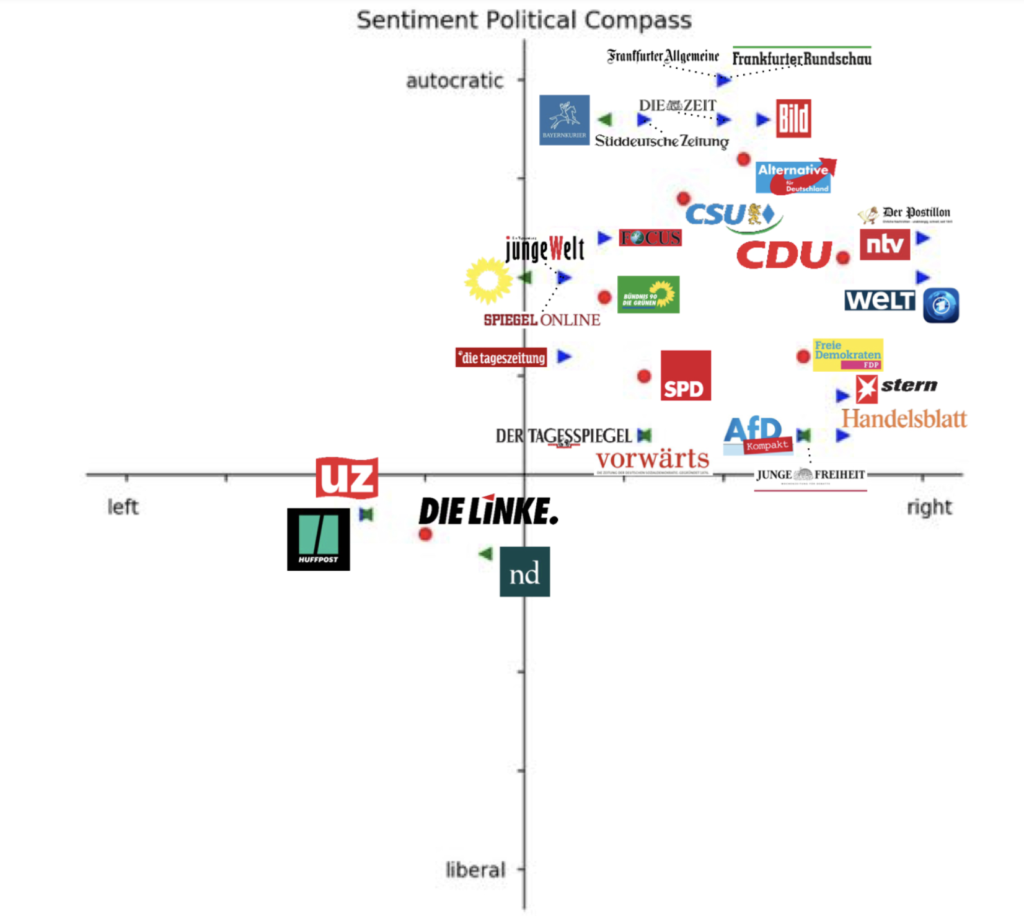- Hashjacking
- Twitter usage of German Politicians (tbc)
Sentiment Political Compass
The proximity between newspapers and political parties is strongly subjective and difficult to measure. Yet, political tendencies of newspapers can have a significant impact on voters’ opinion-forming and ought to be known by the public in a transparent and timely manner.
Niklas Stoehr from the oxford.berlin Social Data Science collaboration looked into this problem as part of a project with researchers from Imperial College London and the Karlsruher Institute of Technology. The study resulted in the design of the Sentiment Political Compass, a data-driven framework for analysing the political bias of newspapers towards political parties.

Using the Compass, newspapers are embedded in a two-dimensional space (economically left-leaning vs. right-leaning, socially libertarian vs. autocratic). To assess the informative value of the framework, the team crawled a dataset consisting of 180,000 newspaper articles from 25 newspapers over a time period of 18 months around the last German Federal Elections and extracted 740,000 political entities enriched with their contextual sentiment.
Here, we present the key findings from the paper. Besides the two-dimensional Sentiment Political Compass itself, the plots outline the sentiment expressed in different German newspapers towards political entities on the party- and politician-level. They also shed light on the temporal dimension of the media sentiment.
The dataset and the open-source code are available at www.politicalcompass.de to encourage the application of the Compass to other political landscapes.
The Sentiment Political Compass was first presented at the conference Policy, Politics and Internet 2018, hosted by the Oxford Internet Institute. Later, the Sentiment Political Compass was published as a full paper in the journal Policy & Internet which is part of the Wiley Online Library.
Featured by Speakerpolitics.org

